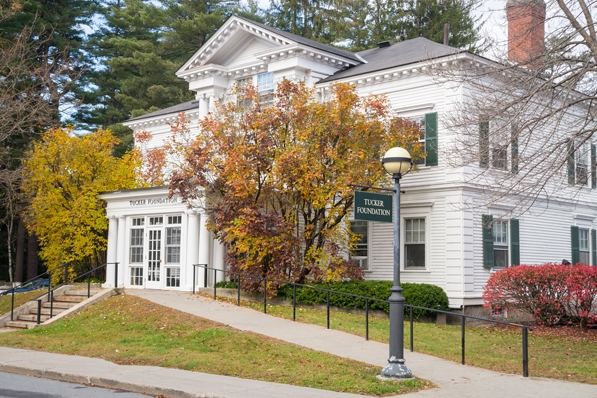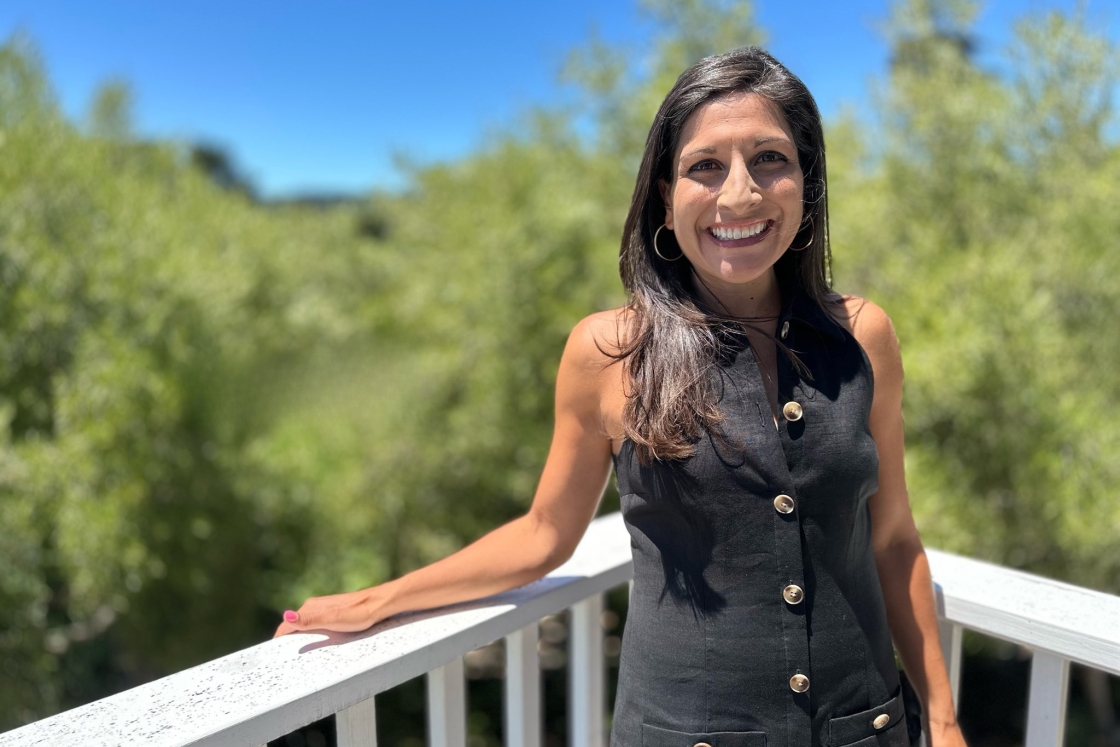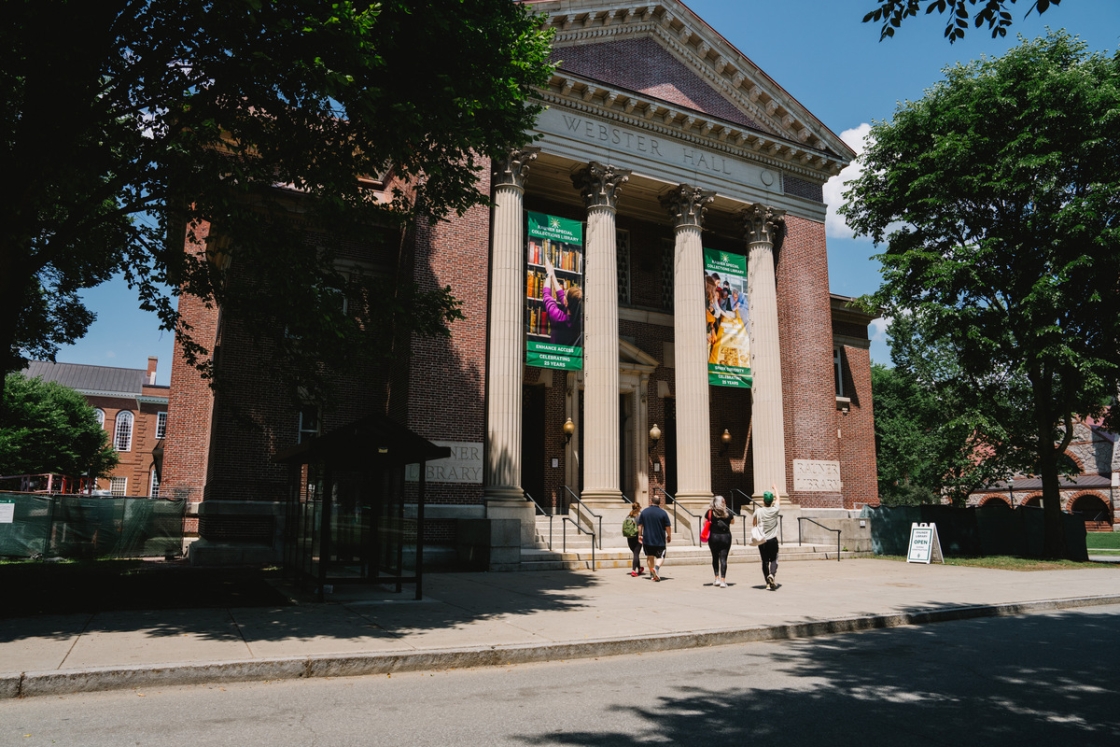Provost Carolyn Dever has approved plans for two new centers that will carry on the work of the Tucker Foundation—the Dartmouth Center for Service and the William Jewett Tucker Center.

“Many students, faculty, staff, and alumni helped us formulate these plans, and we are excited about the future of both centers,” says Martin Wybourne, the Francis and Mildred Sears Professor of Physics and senior vice provost for research. (Photo by Eli Burakian ’00)
“The work of these two centers has never been more critical,” says Dever. “More than ever before, students come to Dartmouth with the desire to change the world. The Center for Service and the Tucker Center will support them in figuring out how to do just that.”
Dever says she’s looking forward to involving students in the launch of the two new centers, including perhaps helping give the service center a permanent name. Last June, the Dartmouth Board of Trustees voted to refocus the work of the Tucker Foundation by creating two centers from the existing one. The College is in the process of completing the final legal steps necessary to adjust the endowment portfolio of the two centers.
The aim of the William Jewett Tucker Center will be to inspire and support members of the Dartmouth community to cultivate a sense of meaning and purpose through spiritual, ethical, and moral exploration and engagement. Consistent with its founding principles and history, the Tucker name will remain with the new center for religious and spiritual life.
The Dartmouth Center for Service will prepare students to lead lives of purpose through engagement in service to others in the social and nonprofit sectors, social entrepreneurship, philanthropy, and social activism. The center will offer experiential service learning opportunities in collaboration with other centers at the College. Both centers will give students a chance to apply what they have learned to real-world experiences.
Read more:
“Many students, faculty, staff, and alumni helped us formulate these plans, and we are excited about the future of both centers,” says Martin Wybourne, the Francis and Mildred Sears Professor of Physics and senior vice provost for research, who as interim provost convened a working group on each center following recommendations from a task force in the fall of 2013.
The new endowment plan was developed through work with donors to specify their preferred area of support and to ensure that donor intent is honored. In cases where no donor is living, the funds will be divided between the two centers. Completion of legal steps necessary to establish the two new centers could come as early as June or could stretch to the end of the year, says Theresa Ellis ’97, Interim Dean at Tucker. New directors will be hired for both centers, with searches to begin following completion of those steps.
“While it is difficult to wait, we are starting to lay the groundwork for the transition in the months ahead. We are charting a compelling path, one I wish had been available when I was a student here,” says Ellis.
Key components of the Tucker Center will be to support campus ministries and encourage multi-faith conversations and opportunities. The center will continue to support more than two dozen campus ministers who work with about 25 percent of enrolled students in a variety of faith communities.
The Center for Service will make volunteer opportunities available to the College community while also creating transformative experiential learning opportunities for students who want to become leaders in the social sector. Early efforts of the Center for Service will include building a leadership program for first-year students, identifying alumni who are interested in mentoring students who want to be engaged in social impact and social innovation work, and building on the first Careers for the Common Good Symposium. The Center will work closely with other Dartmouth centers, including theDartmouth Center for the Advancement of Learning, the Center for Professional Development, the Nelson A. Rockefeller Center for Public Policy and the Social Sciences, and the John Sloan Dickey Center for International Understanding.
“I’d like to thank Martin and the alumni, faculty, students, and representatives from the Tucker Board of Visitors who participated in the working groups. Their ideas, effort, and wisdom have helped us get to where we are today,” Dever says.

